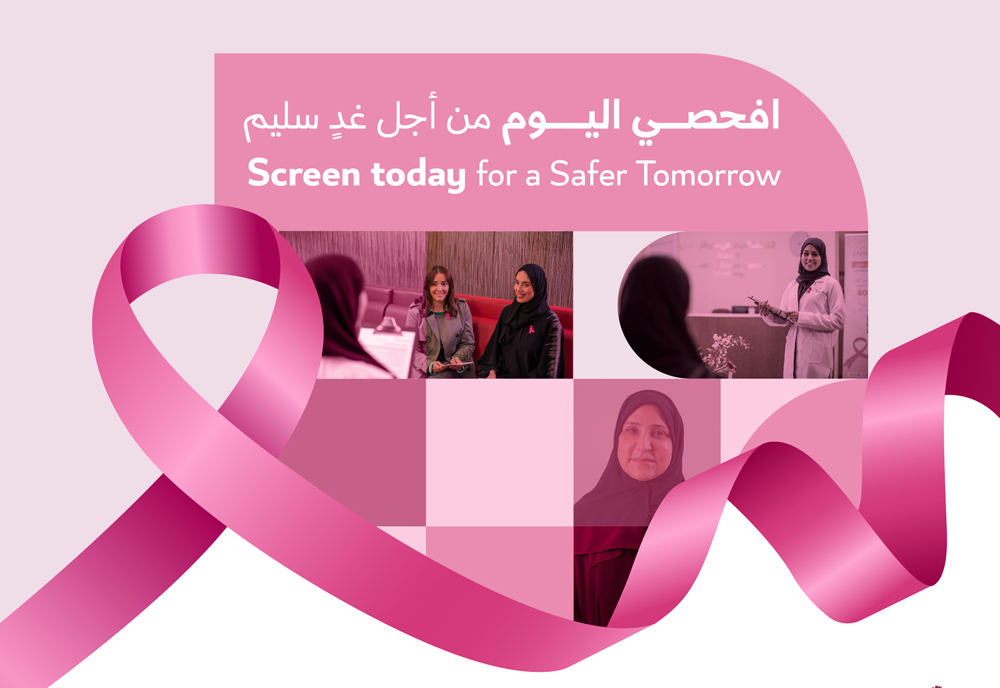Breast cancer is a serious concern in Qatar, with early detection playing a crucial role in successful treatment. The National Breast Screening Program at the Primary Health Care Corporation (PHCC) is launching a comprehensive breast cancer awareness campaign to educate women about the importance of early detection. This program, also known as ‘Screen for Life,’ is a population-based initiative under Qatar’s National Cancer Program that aims to promote education, awareness, and early detection of breast and bowel cancer. This aligns with the country’s National Health Strategy, emphasizing preventive and community-based care.
The campaign, scheduled for October, will utilize traditional and digital marketing strategies and partnerships with key entities like Women Wellness and Research Center, Qatar Museums, and Qatar Foundation. The chosen slogan, “Screen Today for a Safer Tomorrow,” highlights the importance of proactive screening. Early detection can increase survival rates significantly, with the potential for a 100% survival rate when diagnosed early. The campaign aims to spread this crucial message and encourage women to take control of their health through timely screenings.
As part of the initiative, an activation booth will be set up at Vendome Mall on October 10th and 11th, where women can learn more about breast health, screening importance, and how to book mammogram appointments. The campaign not only educates but also encourages community engagement and support for women’s health. It is vital for women aged between 45 and 69, both citizens and residents in Qatar, to participate in the screening program. Healthy women within this age group, without symptoms related to breast cancer and no prior mammogram in the last three years, are encouraged to take advantage of this preventative measure.
Dr. Shaikha Abu Shaikha, Director of the Screening Programs at PHCC, stresses the importance of routine screening for women within the specific age bracket. Women who meet the criteria or know someone who does are urged to schedule a breast screening appointment by contacting the cancer screening program directly. Conveniently located at four health centers across Qatar, the breast screening clinics aim to make screenings accessible to all eligible women. Dr. Shaikha emphasizes that awareness is key in combating breast cancer, and the campaign intends to empower women with knowledge to ensure peace of mind about their health.
In conclusion, the National Breast Screening Program’s comprehensive breast cancer awareness campaign is a vital initiative to educate women in Qatar about the importance of early detection. Through partnerships with key entities and a strategic marketing approach, the campaign aims to spread awareness about the significance of proactive screening. With breast cancer being the most common cancer in Qatar, the campaign emphasizes the potential for high survival rates through early detection. Women aged between 45 and 69 are encouraged to participate in the screening program to take charge of their health and ensure peace of mind. By empowering women with knowledge and promoting routine screenings, the campaign hopes to make a significant impact on combating breast cancer in Qatar.











